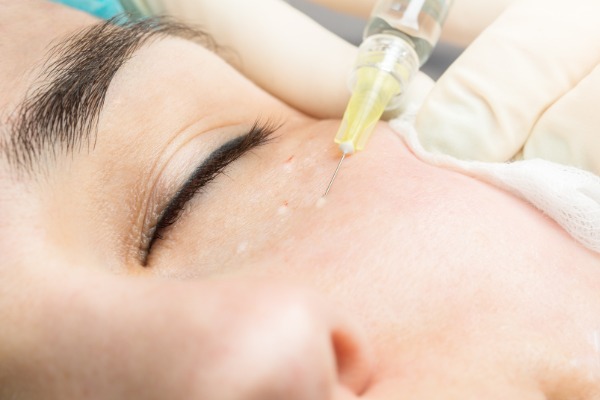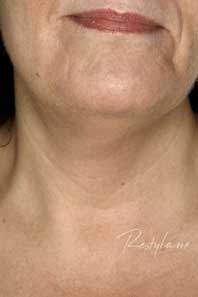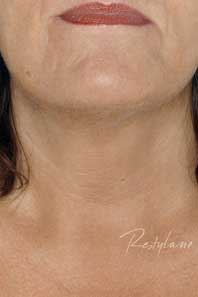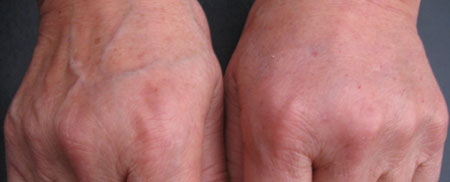
Procedure Time: 10-20 minutes, course of treatments recommended with regular maintenance after completion.
Recovery Time: No downtime
Results Duration: Several months, maintenance treatments recommended.
Cost: Varies depending on product brand
Anaesthesia: None required. Topical anaesthesia can be used if sensitive.
For a full list of FAQs please Click Here.
Mesotherapy is a medical technique devised in the 1950s. It was first used to treat such conditions as rheumatism, sports injuries, and for the improvement of blood circulation. Mesotherapy has now been used successfully for the treatment of cosmetic conditions, including skin rejuvenation and improvement, hair regrowth, localised fat reduction and as a treatment for cellulite. Mesotherapy involves the injection of a specially prepared mixture placed just millimetres under the skin. Mesotherapy for treating ageing skin aims to replace minerals, vitamins and amino acids that are found in lower levels in skin as we age. Another newer procedure is to boost levels of hyaluronic acid in the skin. Micro-injections are given every couple of weeks for two to three treatment courses. When the desired effects are achieved, you will require a maintenance program every 2 - 3 months or so. Private prices for mesotherapy can range from £50 to several £100's per treatment session.
Do you have a question? Ask one of our experts NOWMesotherapy is a medical technique devised in the 1950s by a Frenchman called Dr Michel Pistor. It was first used to treat such conditions as rheumatism, sports injuries, and for the improvement of blood circulation.
Mesotherapy has now been used successfully by some practitioners for the treatment of cosmetic conditions, including skin rejuvenation and improvement, hair regrowth, localised fat reduction and as a treatment for cellulite.
It is commonly practised in France, where more than 15,000 practitioners use Mesotherapy for the care of their patients and it is a procedure that is taught in French medical schools.
Mesotherapy is also practised in many other countries around the world, and is currently gaining widespread acceptance by cosmetic clinics in the UK and the USA. According to statistics from the American Society for Aesthetic Plastic Surgery (ASAPS), just under 29,000 Americans had mesotherapy treatment in 2006, a staggering increase of 505% on 2005 figures.
If you are considering mesotherapy, the following information will give you a basic understanding of the procedure. It can't answer all your questions, since a lot depends on the individual patient and the practitioner. Please ask a practitioner about anything you don't understand.
Mesotherapy involves the injection of a specially prepared mixture of vitamins, amino acids, and medications, placed just millimetres under the skin into the problematic area. Just a "drop" of solution is used at each injection site.
The idea is that you can get these active substances to the site requiring treatment by directly injecting them there. This is instead of relying on a tablet or intravenous injection where higher concentrations of the drug are required in order to get adequate levels to the site requiring treatment. Mesotherapy is both more precise and requires less solution to be injected.
The actual preparation injected into the mesoderm (or surface layer of the skin) during Mesotherapy depends upon the problem being treated. In general, the substances used can include: a local anaesthetic, and products that may reduce inflammation and treat veins, muscle relaxants, enzymes, vitamins, minerals, plant extracts, hormones, and hormone blockers; to name but a few.
Mesotherapy as a skin rejuvenating treatment
Mesotherapy in the treatment of ageing skin aims to replace minerals, vitamins and amino acids that are found in lower levels in skin as we age.
Another newer procedure is to boost levels of hyaluronic acid in the skin. This is another important component of the skin that helps to maintain firmness and texture.
Again, as the skin ages, levels of hyaluronic acid decrease, and it is claimed that injecting more hyaluronic acid into the dermal layers (just below the surface of the skin) helps to stimulate more collagen production, which, in turn, improves skin tone and helps to reduce fine lines and wrinkles.
Careful discussions regarding your reasons for wanting treatment of your skin are very important before you begin mesotherapy. You must also make sure that this treatment can deliver what you want and how you would like to look afterwards.
A medical history should also be taken to make sure that there are no reasons why you shouldn’t undertake treatment. You may be asked to sign a consent form which means that you have understood the potential benefits and risks associated with the procedure.
Photographs may also be taken by the practitioner for a "before and after" comparison at a later date.
Treatment may be carried out immediately after an initial consultation at which point you will be informed as to how many treatments you will require.
The procedures
Mesotherapy involves multiple injections using a very fine needle, immediately beneath the surface of the skin. It will help to improve circulation, replace lost vitamins, minerals and amino acids, or boost levels of hyaluronic acid.
Each treatment takes about ten to twenty minutes and is generally not painful. If you find it uncomfortable, a topical anaesthetic can be applied prior to treatment.
Repeat procedures
Micro-injections are given every couple of weeks for two to three treatment courses. Some individuals may require a longer initial course of treatment.
When the desired effects are achieved, you will require a maintenance program every 2 - 3 months or so.
After the treatment you can return to normal activities.
Fine needles are used to help keep any pain – which is generally only minor and short lived – to a minimum.
Possible side-effects are small bruises which vanish in a few days, and a little swelling in the injected area which remains for about 12 - 36 hours.
Some individuals may experience an allergic reaction to the products used, although this is a rare occurrence.
No specific advice is usually given.
You should, however, contact your practitioner immediately if you notice any signs of pain or inflammation in the area treated.
You should not undergo mesotherapy if you have a history of any allergic reactions to any of the substances being injected.
Your practitioner will discuss this and any risks in the first medical consultation.
Mesotherapy is an interventional natural medicine technique. Mesotherapy must be performed by a licensed health care clinician who is permitted to do injections.
Private prices for mesotherapy can range from £50 to several £100's per treatment session.
There are many people in the medical profession in the U.K. who are sceptical about the effectiveness and potential long term safety of this procedure.
It is, however, a widely accepted treatment for a number of medical as well as cosmetic problems in France and other parts of Europe.
Over the last couple of years, more U.K. aesthetic practitioners have decided to adopt Mesotherapy at their clinics.
You need to ensure that any claims made by practitioners can be backed up with suitable evidence - preferably by speaking to people who they have treated.


Before and after treatment with RESTYLANE® Vital
Photographs courtesy of Q-med Limited.

Left hand untreated and right hand treated with injections of Elastence™ hyaluronic acid for skin revitalisation - (photo taken 2 days after the first treatment session).
Photographs courtesy of Dr Stefanie Williams, European Dermatology London.
Before and after photographs are real patients, your results may differ.